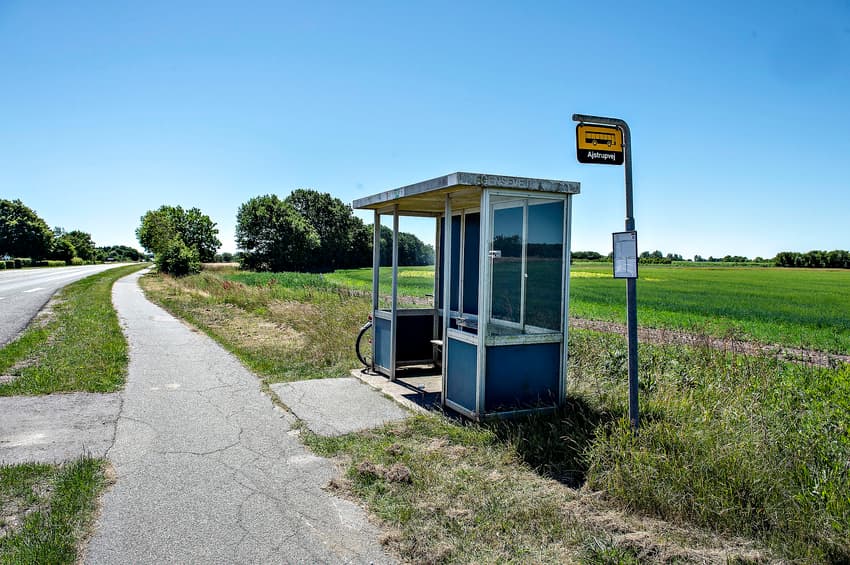Why energy prices worry rural Danes more than those in cities

One in three residents in rural parts of Denmark is very concerned about increasing energy prices, a larger proportion than in cities, a recent poll has found.
Around a third of people in rural areas of Denmark say they are highly concerned about escalating energy costs compared to one in four in cities, broadcaster DR reports based on a recent poll.
The poll was conducted by institute Epinion on behalf of the Danish Agriculture & Food Council (Landbrug og Fødevarer) and the National Council for Rural Districts (Landdistrikternes Fællesråd).
In rural municipalities, 33 percent said they were “to a very high degree” concerned about increasing energy prices. In major cities, 25 percent gave that response.
A similar split is seen for those who said they were concerned “to a high degree” (rather than “very high”) about the issue. Here, 34 percent in rural areas selected the option compared to 27 percent in cities.
972 people took part in the survey.
There may be several reasons for heightened concern over expensive gas, electricity and fuel in rural parts of Denmark.
These include a higher likelihood of needing to drive to essential places like supermarkets and schools if they are not within walking distance, with public transport coverage less comprehensive.
Rural housing may also not be on a district heating network and will therefore rely on individual gas heaters, which are most severely affected by high energy prices.
In addition to these factors, a larger proportion of the rural population is at retirement age and therefore also has reduced flexibility on household income.
People who live in the countryside generally have fewer options at their disposal if they want to take steps to reduce energy costs, Steffen Damgaard, chairperson with Landdistrikternes Fællesråd, said in comments to DR.
“In a larger city there is district heating, which is not as price-sensitive. At the same time you have public transport which is always operating. So there are some extra concerns you can easily have in the countryside when a crisis comes knocking at the door,” he said.
Earlier this week, regional authorities said that some regional bus services could face cancellation without support from the central government. Declining passenger numbers and high fuels costs mean the regional buses are far exceeding their budgets. Potential bus closures could also have a skewed impact in rural areas.
READ ALSO:
Comments
See Also
Around a third of people in rural areas of Denmark say they are highly concerned about escalating energy costs compared to one in four in cities, broadcaster DR reports based on a recent poll.
The poll was conducted by institute Epinion on behalf of the Danish Agriculture & Food Council (Landbrug og Fødevarer) and the National Council for Rural Districts (Landdistrikternes Fællesråd).
In rural municipalities, 33 percent said they were “to a very high degree” concerned about increasing energy prices. In major cities, 25 percent gave that response.
A similar split is seen for those who said they were concerned “to a high degree” (rather than “very high”) about the issue. Here, 34 percent in rural areas selected the option compared to 27 percent in cities.
972 people took part in the survey.
There may be several reasons for heightened concern over expensive gas, electricity and fuel in rural parts of Denmark.
These include a higher likelihood of needing to drive to essential places like supermarkets and schools if they are not within walking distance, with public transport coverage less comprehensive.
Rural housing may also not be on a district heating network and will therefore rely on individual gas heaters, which are most severely affected by high energy prices.
In addition to these factors, a larger proportion of the rural population is at retirement age and therefore also has reduced flexibility on household income.
People who live in the countryside generally have fewer options at their disposal if they want to take steps to reduce energy costs, Steffen Damgaard, chairperson with Landdistrikternes Fællesråd, said in comments to DR.
“In a larger city there is district heating, which is not as price-sensitive. At the same time you have public transport which is always operating. So there are some extra concerns you can easily have in the countryside when a crisis comes knocking at the door,” he said.
Earlier this week, regional authorities said that some regional bus services could face cancellation without support from the central government. Declining passenger numbers and high fuels costs mean the regional buses are far exceeding their budgets. Potential bus closures could also have a skewed impact in rural areas.
READ ALSO:
Join the conversation in our comments section below. Share your own views and experience and if you have a question or suggestion for our journalists then email us at [email protected].
Please keep comments civil, constructive and on topic – and make sure to read our terms of use before getting involved.
Please log in here to leave a comment.